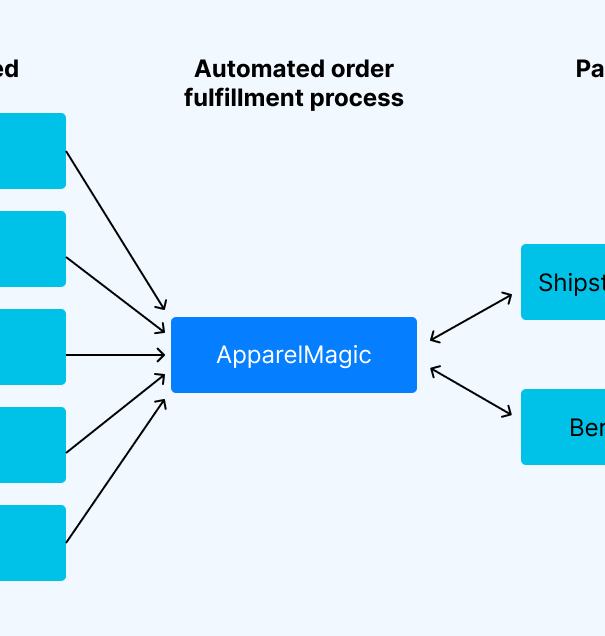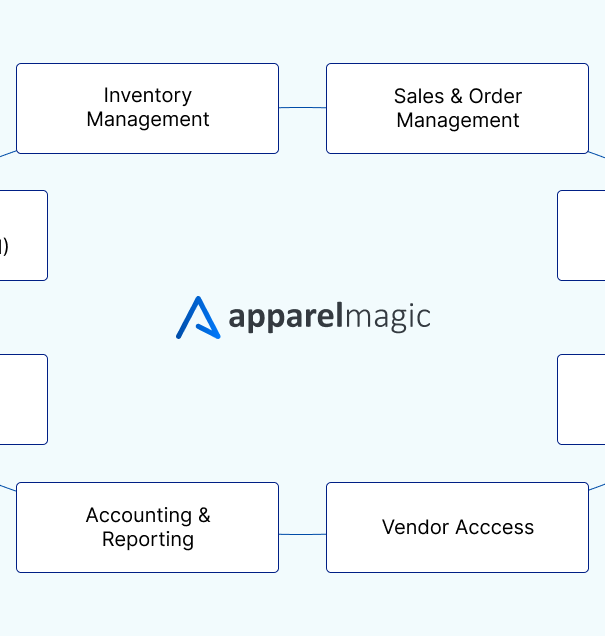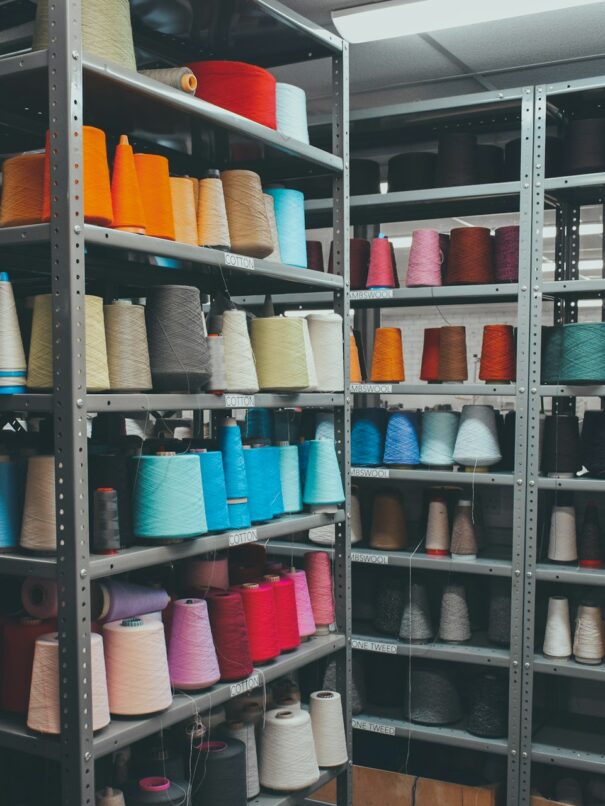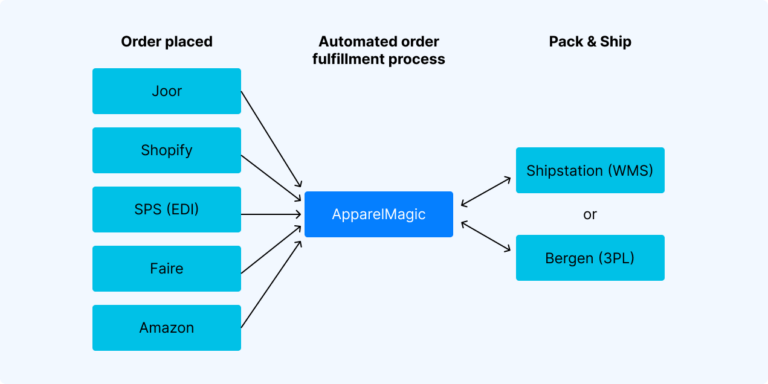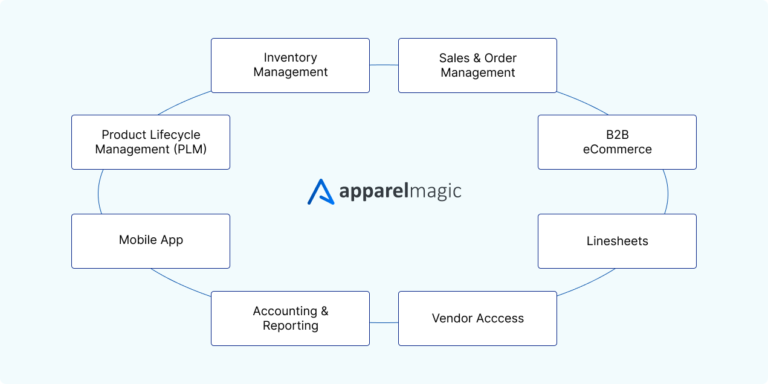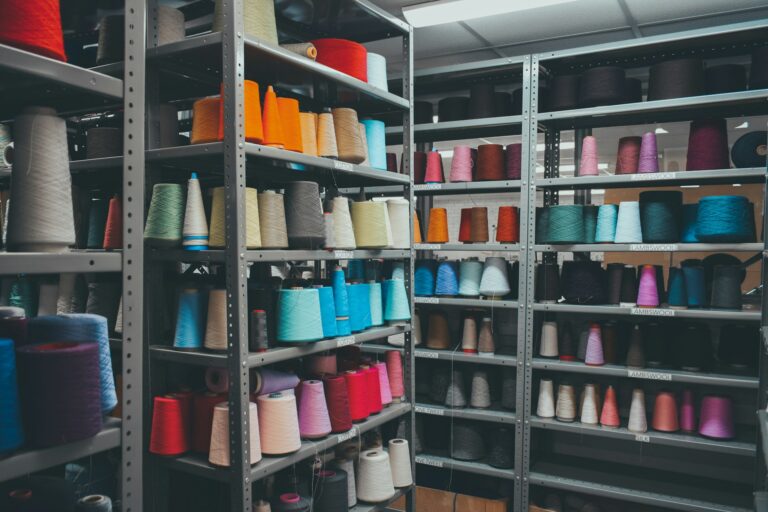In the intricate dance of business operations across various industries, the rhythm of success is set by the seamless flow of information and processes. This is where enterprise resource planning (ERP) steps in, orchestrating a symphony of integrated functions that transform the cacophony of disparate systems into a harmonious whole.
However, the fresh produce industry and the fashion retail industry, each with its own unique tempo and challenges, require a conductor that understands their distinct nuances. The fresh produce industry grapples with the perishability of its products, the complexity of its supply chains, and the rigidity of quality standards. In contrast, the fashion retail industry faces the fickleness of trends, the intricacies of inventory management, and the pressure of consumer demands.
In this article, we will uncover how ERP systems, tailored to the specific cadences of these industries, can become the maestros that lead them to the crescendo of success.
An in-depth dive into Enterprise Resource Planning Software’s Role in the Fresh Produce Industry
The fresh produce industry grapples with unique challenges, including the perishability of products, fluctuating consumer demand, and stringent regulatory compliance requirements. enterprise resource planning systems have emerged as a vital solution to these challenges, offering a range of benefits that enhance efficiency and profitability. One of the most significant advantages of ERP implementation in the fresh produce industry is improved inventory management. With real-time monitoring of stock levels, ERP systems help businesses optimize inventory turnover, reduce waste, and minimize the risk of product spoilage.
This is particularly crucial for perishable goods, where overstocking can lead to significant losses. ERP systems also play a pivotal role in enhancing traceability and compliance.
By providing end-to-end visibility of the supply chain, from farm to fork, ERP systems ensure adherence to food safety standards and enable swift response to product recalls. This not only safeguards consumer health but also protects brand reputation.
Additionally, ERP systems streamline operations by automating manual processes, reducing errors, and improving overall operational efficiency. This reduces waste, cost savings, and increased profitability for fresh produce businesses.
In a nutshell, enterprise resource planning systems offer valuable insights into sales trends, customer preferences, and market dynamics, enabling better demand forecasting and responsive supply chain management. By aligning supply with demand, businesses can reduce lead times, optimize procurement, and enhance customer satisfaction regardless of whether businesses leverage it in the fresh produce industry or the fashion industry.
Lessons for Fashion Retail
It’s safe to say that fashion retail ERP systems play an indispensable role in addressing the challenges faced by the fresh produce industry, offering benefits that drive efficiency, compliance, and profitability. The food industry, with its vast amounts of perishable goods and fluctuating customer demand, has greatly benefited from ERP systems.
Interestingly, the fashion retail industry shares several similarities with the fresh produce sector. Both industries deal with perishable goods, albeit in different ways – fresh produce with its limited shelf life and fashion retail with its rapidly changing trends. Both sectors also face the challenges of fluctuating demand, the need for efficient inventory management, and the importance of traceability and transparency in the supply chain. As such, the fashion retail industry can learn valuable lessons from the fresh produce sector’s successful enterprise resource management system implementation.
Adapting ERP strategies from the fresh produce industry can help fashion retail businesses optimize inventory management and stock rotation, ensuring that products are sold before they go out of style and reducing the need for markdowns. ERP systems can also enhance traceability and transparency in the fashion supply chain, building consumer trust and ensuring compliance with ethical and sustainable sourcing standards.
Additionally, by automating processes and reducing manual errors, ERP systems can streamline operations in fashion retail, leading to reduced waste, cost savings, and increased profitability. ERP systems also play a crucial role in production planning, ensuring that the right products are available at the right time. Human resources management is another area where ERP systems can provide valuable insights, helping fashion retailers optimize staffing levels and improve customer service.
Ultimately, ERP systems can provide insights into fashion trends and customer preferences, enabling accurate demand forecasting and responsive supply chain management. By aligning supply with demand, fashion retail businesses can reduce lead times, optimize procurement, and enhance customer satisfaction. In conclusion, by adapting ERP strategies from the fresh produce industry, fashion retail can enhance efficiency, reduce waste, and meet consumer demands for transparency and sustainability. This is particularly important as the customer base becomes more discerning and demands higher standards from fashion retailers.

Implementing ERP Systems Effectively
While the benefits of ERP systems in fashion retail are evident, implementing such systems is challenging. One of the primary challenges is the complexity of the fashion supply chain, with multiple stakeholders, including designers, manufacturers, distributors, and retailers. Integrating these diverse entities into a single ERP system can be a daunting task.
However, by opting to leverage an enterprise resource planning system that is specifically designed with fashion businesses in mind, you can ensure that you can enjoy operating a streamlined fashion brand that is both sustainable and profitable, as the metrics and features of the ERP will guide you towards the right actions.
Let’s explore some common challenges fashion businesses can encounter when implementing ERP systems and how they can tackle them.
- Complex supply chain: Unlike other industries, fashion has a multifaceted supply chain. The business processes range from designers sketching out the latest trends to manufacturers producing garments and distributors shipping them worldwide; integrating these diverse entities into a cohesive ERP system can be daunting.
The sheer number of products, sizes, colors, and styles further complicates the process.
- Fast-paced industry dynamics: Fashion is notorious for its rapid trend cycles. What’s in vogue today might be passé tomorrow. An ERP system for such an industry needs to be agile, capable of adapting to these swift changes, and ensuring that supply meets demand without leading to overstock or stockouts.
A solution like ApparelMagic will allow you to always stay on top of the industry with its variety of features and means to extend functionality with countless integration options.
- Data accuracy and integrity: The success of an ERP system hinges on the accuracy of data. Inaccurate data can skew demand forecasts, disrupt inventory management, and result in financial discrepancies.
Finding a solution known for its data accuracy across all touchpoints, from procurement to sales, is a significant challenge.
Considerations for Successful ERP Adoption in Fashion Retail
While there are certainly some challenges businesses will encounter when transitioning from completing the manual processes on their own to streamlining them with ERP systems, however, as soon as that transition occurs, businesses can rest assured that the benefits they can enjoy will be tremendous.
Here are some considerations which businesses can follow to ensure a successful ERP adoption.
- Industry-specific ERP solutions: Not all ERP systems are created equal. For the fashion industry, it’s imperative to choose a solution tailored to its unique needs. Features like real-time inventory tracking across multiple locations, demand forecasting based on trend analysis, and integrated eCommerce capabilities can make a significant difference.
- Engaging stakeholders: Successful ERP implementation is a collaborative effort. It’s essential to involve all stakeholders, from top management to store managers, in the process. Their insights can help customize the ERP solution to address specific challenges and needs.
- Comprehensive employee training: An ERP system is only as good as the people using it. Investing in comprehensive training ensures that employees can leverage the system’s capabilities to the fullest. This not only speeds up the adoption process but also reduces errors and inefficiencies.
- Ongoing monitoring and iteration: Post-implementation, it’s crucial to monitor the ERP system’s performance. Regular audits can identify areas of improvement. Feedback from users can lead to tweaks and customizations, ensuring that the system remains aligned with the industry’s evolving needs.
- Integration with other systems: Fashion retailers often use multiple software solutions, from point of sale (POS) systems to eCommerce platforms. Ensuring seamless integration between these systems and the ERP solution can enhance data flow, improve decision-making, and optimize operations.
- Scalability: As fashion brands grow and expand into new markets, their ERP system should be capable of scaling with them. This means being able to handle increased data loads, integrate with new sales channels, and adapt to different regulatory environments.
Conclusion
The implementation of ERP systems in both the fresh produce and fashion retail industries is a critical business decision that can significantly impact efficiency, compliance, and profitability. In the competitive industry of fashion retail, where customer demand is constantly changing, having a single dashboard that integrates all business processes is essential. ERP systems provide this natural insight, allowing businesses to make informed decisions based on real-time data. This not only improves inventory management and production planning but also enhances the customer experience by ensuring that products are available when and where they are needed.
Moreover, ERP systems play a crucial role in sustainable supply chain management. By providing end-to-end visibility of the supply chain, ERP systems enable businesses to track the source of their products, ensure compliance with ethical and sustainable sourcing standards, and respond quickly to any issues that may arise. This is particularly important in the fashion retail industry, where consumers are increasingly demanding transparency and sustainability.
However, the successful adoption of fashion retail ERP-tailored systems requires careful consideration and planning. It is essential to choose an ERP system that is tailored to the specific needs of the industry, engage all stakeholders in the implementation process, and invest in comprehensive employee training. Ongoing monitoring and iteration are also necessary to ensure that the ERP system remains aligned with the industry’s evolving needs and continues to deliver value.


